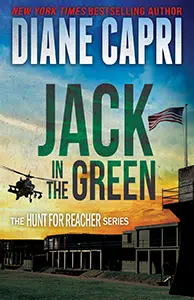Ability to grasp the obvious is an essential life skill. Failure to perceive can be fatal. Or, as Judge Willa Carson says, “You never see the bullet that gets you.”
It’s no wonder then, that it took me a while to grasp why artists on two continents chose mysterious eyes to adorn my novel covers.
“What’s with the eyes?” I wanted to know.
“Don’t you see?” the Chinese cover artist asked.
“Are you blind?” the Australian wondered.
Instantly, their questions revealed the answer. In one eureka moment I saw clearly: eyesight and insight. Which led to the constant question: why?
After some mucking around in the memory banks, the answer was less mysterious. Eyewitnesses are notoriously unreliable. The past reveals the present, and we see what we’re programmed to see.
Here’s the rest of the story.
My epiphany was simply that we view past and present through our own subconscious filters, whether we admit it or not. Even the sighted can’t see the future (think of every time we’ve made mistakes and later thought, “Wish I’d known that!”); situations are not always what we think they are and outcomes are rarely those we fear. We enjoy vision beyond our memory screens, but we understand how life works through experience and insight.
These were a few of the lessons I learned as a lawyer serving blind justice. No wonder, then, that my writing reflects themes of eyesight, insight, and everyday heroes looking out for their families. Yep. Plainly visible to anyone who looks closely.
“But what about the mysteries? And those murderous families?” I wondered.
Pretty simple, really. We all want to know the rest of the story and the modern legal system rarely reveals it. Did OJ kill his wife? Did Casey kill her daughter? What about Scott Peterson? What is the rest of the story? And always: why, why, why?
I spent many years arguing clients’ causes, often against equally plausible alternative facts. We battled our way forward to truth and justice in the American way. Over the years, in the courtroom and in life, I’ve learned that observing is not perceiving, eyesight is not insight, clients never reveal everything, and there’s always more going on than we know.
I’ve learned to challenge assumptions. We don’t see things the same way even when we’re looking at the same picture. You see obvious facts that elude me; I see hidden relationships you may not notice. We can’t learn to think as others think, but we can appreciate each perspective.
We used a famous psychological experiment to demonstrate this phenomenon to audiences. We displayed a sketch some would consider an optical illusion; a combined old crone and young hottie. Then we asked the audience what they saw. Seldom did viewers perceive both women; heated arguments erupted over which one “really” existed. Rarely were opponents persuaded by arguments and demonstrations, but sometimes an epiphany came. Then astonishment was a sight to behold.
The best mysteries in fiction are the same as mysteries of life. We love Sherlock Holmes (and his many modern counterparts) because he observes what we observe, but he sees it differently. We know we don’t understand his secrets or how his mind detects. Not only whodunit, but why; how things work, as well as what they do. We seek to be surprised, to learn that the situation was not what we thought it was and gobstruck with awesome admiration when Sherlock reveals the solution.
Einstein said, “Reality is merely an illusion, albeit a very persistent one.” He meant our perception is our reality until our perception changes and we’re amazed by new reality. Until then, stay tuned for the rest of the story.



This is such a great post! I can see why you decided to use this link.
I agree that there are often so many nuances that we miss. There is so much miscommunication even when we try to get our point across.
Excellent!
Thanks, Susie! If not for your party, this post might have gone forever unread. A psychic told me once that I see the hidden relationships others don’t see. At the time, I thought she was crazy. But over the years, I’ve come to realize she was spot on (but I’m not sure it’s such a great thing!). Thanks for reading!
Fantastic post, Diane! You started out on a poignant note. 🙂 I love learning about people’s motivations, what led them to pursue writing as a career. I agree with this: “The best mysteries in fiction are the same as mysteries of life.” The thriller/crime genre is rich with important truths and lessons, if you ask me. But then again, I’m biased! Thanks for sharing this post – would’ve been sad to miss it!
Thanks, August. I appreciate your read and your take on the thing – and totally agree on the crime fiction point you make. The best crime fiction helps us live better lives, IMHO.